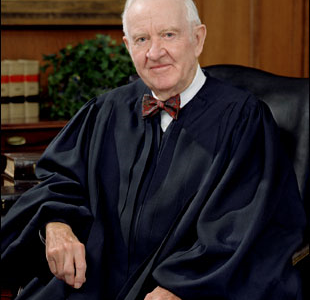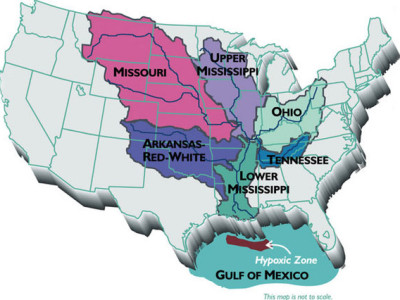CEQA Reform 2013 Holds Promise for Improving the Environment
Despite grumblings, the new law contains significant victories for infill development and urban investment
Governor Brown recently signed into law this year’s version of “CEQA reform,” which as Eric noted was decidedly stripped down from what it could have been. SB 743 (Steinberg) got a lot of negative attention for giving the Sacramento Kings basketball arena proponents accelerated environmental review and immunity from injunctive relief unless the project is found to jeopardize public health, safety, or archaeological resources. In exchange for these benefits, the...
CONTINUE READINGMore Musings on the Cert Petition Grant in the Greenhouse Gas Emissions Case
Does Regulating Greenhouse Gases Lead to Absurd Results and What Happens Once the Court Rules?
In follow up to my early morning post of this morning, here are a couple of additional points. 1) A related but different argument petitioners are making about why the PSD provisions don't apply to the regulation of greenhouse gases is that the application of the provisions would lead to absurd results. The absurd results come about because the definition of "major source" in the PSD statutory language -- 100 tons per year of any air pollutant -- would sweep in a ...
CONTINUE READINGSupreme Court Grants Cert on One Aspect of Greenhouse Gas Emissions Suit
Court lets stand endangerment finding, rules regulating emissions from automobile tailpipes
This morning, the Supreme Court announced that it has granted six of the nine petitions challenging the D.C. Circuit Court of Appeals ruling upholding the Environmental Protection Agency's rules regulating greenhouse gases under the Clean Air Act. The Court granted cert on only a single question (petitioners had raised a number of them): Whether EPA permissibly determined that its regulation of greenhouse gas emissions from new motor vehicles triggered permitting requ...
CONTINUE READINGWhere Have You Gone, Justice Stevens?
The Supreme Court Misses Justice Stevens' Influence & Perspective on Environmental Law
With the commencement of the U.S. Supreme Court's new Term, it's appropriate to note--and bemoan--the absence of a strong environmental voice on the Court these days. Until his retirement in 2010 after a quarter century on the Court, Justice John Paul Stevens ably served in that role. By contrast, none of the current justices seems particularly interested in environmental law, much less willing to serve as a strong voice on the Court for environmental principles. And tha...
CONTINUE READINGMass. v. EPA bears fruit for environmental petitioners
Court rules that EPA must decide if new water quality standars are needed to protect the Gulf of Mexico
Cross-posted at CPRBlog. A US District Court in Louisiana recently ruled, in Gulf Restoration Network v. Jackson, that EPA must decide whether it has to impose new water quality standards for nutrient pollution in the Mississippi River watershed. Although that might seem far afield from the Supreme Court's greenhouse gas emissions decision in Massachusetts v. EPA, in fact it's a direct descendant. The Administrative Procedure Act allows any interested person to...
CONTINUE READINGStill Waiting For Supreme Court Decision on Greenhouse Gas Emissions Cert Petition
We May Learn This Week Whether Court Takes Up Important Climate Change Case
Court watchers are still waiting to learn whether the U.S. Supreme Court will hear the second most important federal case involving greenhouse gas emissions, Coalition for Responsible Regulation v. EPA. The Court is closed today for a federal holiday (not because of the shutdown) but any day we should hear about whether it will take up the case involving a series of Clean Air Act (CAA) rules that regulate greenhouse gas emissions from big industrial plants, kno...
CONTINUE READINGClimate Denial and the First Amendment
The First Amendment protects even the right to support demonstrably false positions like climate denial.
The editors of the L.A. Times won't publish letters by climate deniers, on the ground that they don't want to take up valuable space with false information. Which raises the question: what does the First Amendment have to say about climate denial? Nothing in constitutional law is 100% clear, but here's a stab at the answers to some key questions: 1. Can a newspaper ban letters by climate deniers? Absolute yes, because the First Amendment applies only to the gov...
CONTINUE READINGNot all drones are weapons of war
Scientists promote low-cost aerial drones as conservation tools
Speaking of visualizing environmental problems, they are hidden for different reasons and therefore can be revealed by a variety of different mechanisms. Drones are one tool with a great deal of potential. Aerial drones have gotten a lot of attention as weapons of war or counterterrorism in the U.S. arsenal. Whatever you think about the use of heavily armed unmanned military craft to "wag[e] war on individuals," though, it's worth noting that drones can take many ...
CONTINUE READINGCalfiornia Bans Lead Ammunition
New Law Is Welcome, But Probably Won't Take Full Effect Until 2019
California Governor Jerry Brown has signed legislation that will ban the use of lead ammunition in California by hunters. In approving AB 711 (Rendon), Brown withstood furious lobbying efforts by the National Rifle Association and some (but not all) hunting organizations, who had urged the Governor to veto the legislation. AB 711 was supported by a broad coalition of conservation groups, including the National Audubon Society and Defenders of Wildlife. The lead amm...
CONTINUE READINGHappy Birthday, TSCA!
With the Toxic Substances Control Act (TSCA) celebrating its 37th birthday today, I was thinking what we should get it as a birthday gift. Here’s one idea; how about a little respect. I’ve blogged before about how the statute has become one of the most denigrated environmental laws on the books. It seems that every other year or so, the General Accounting Office, Congressional Research Service, an NGO, or law professor (myself included) issues yet another conde...
CONTINUE READING







